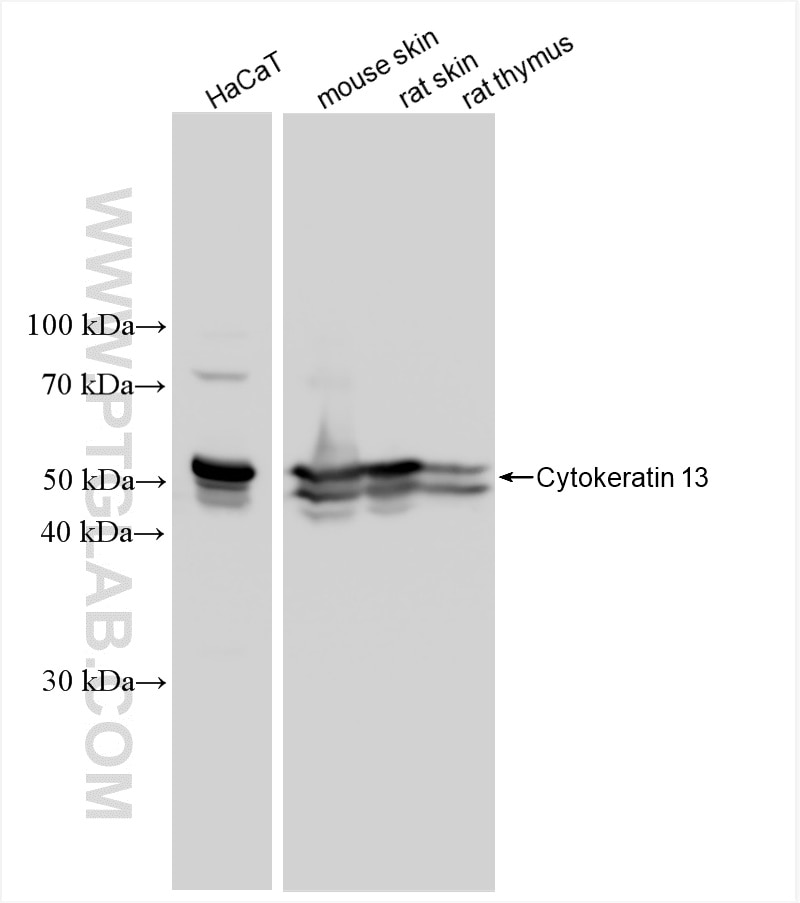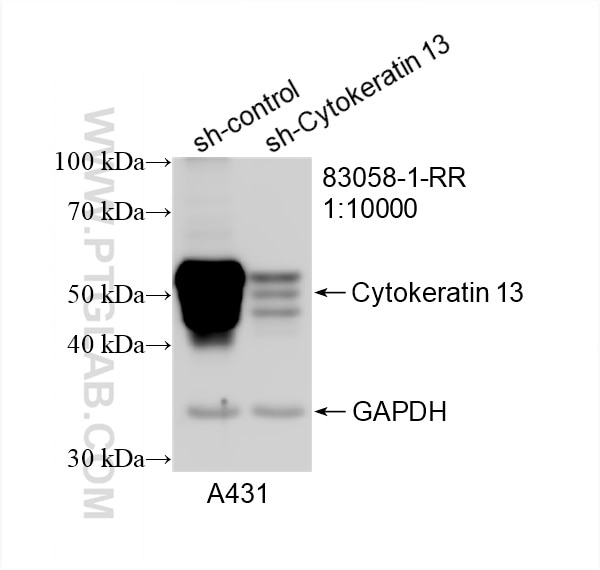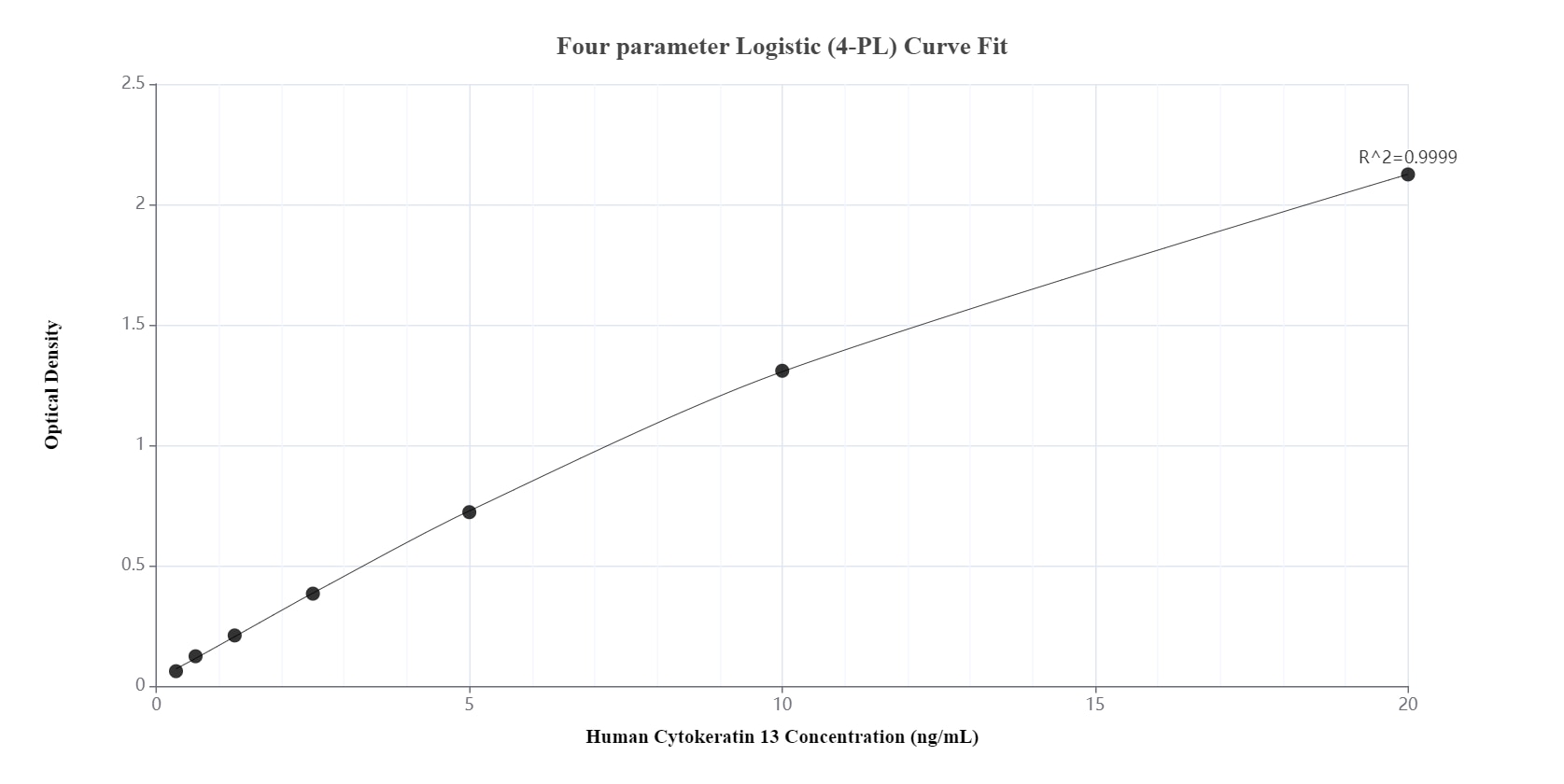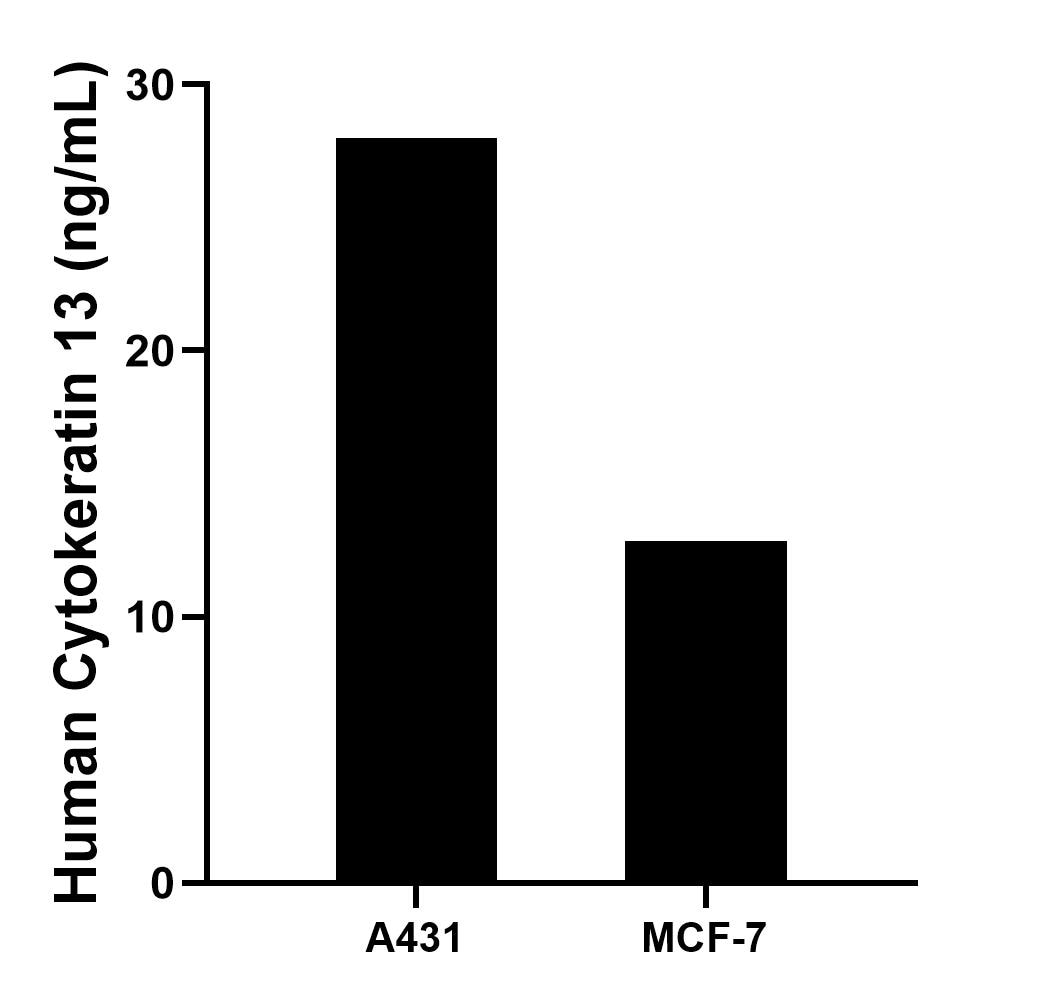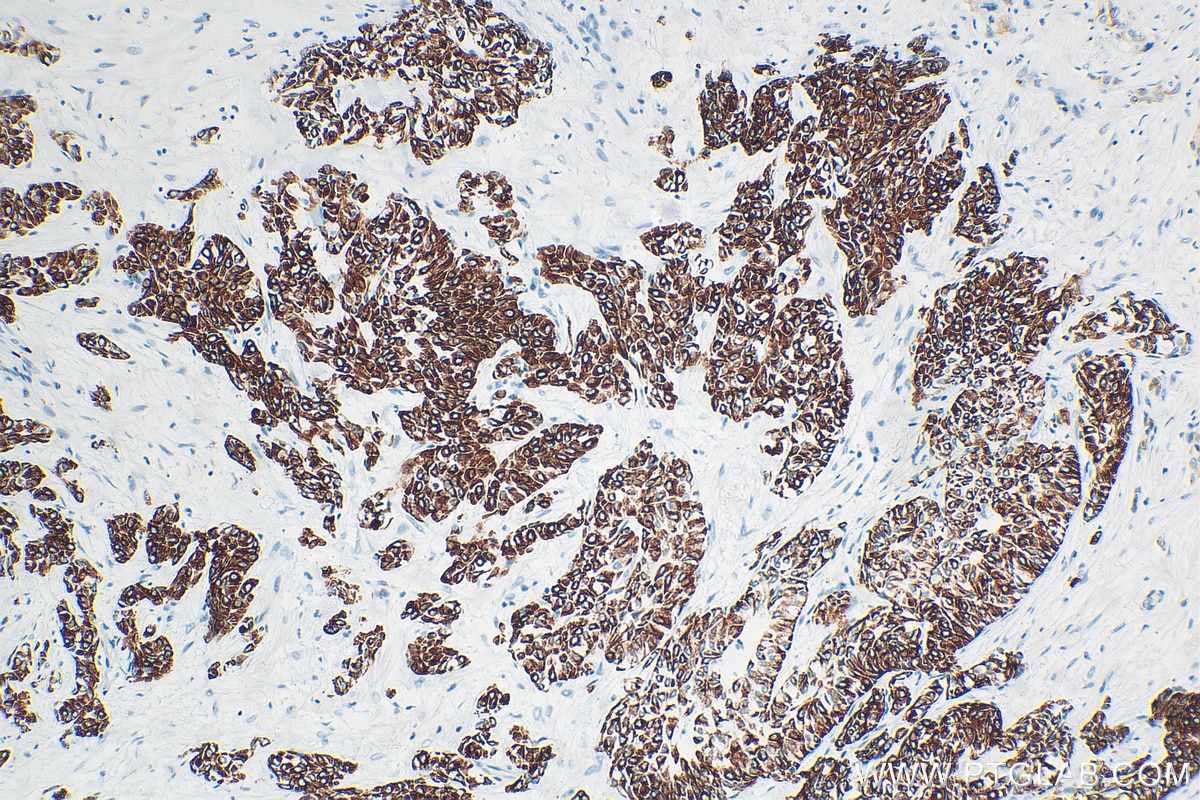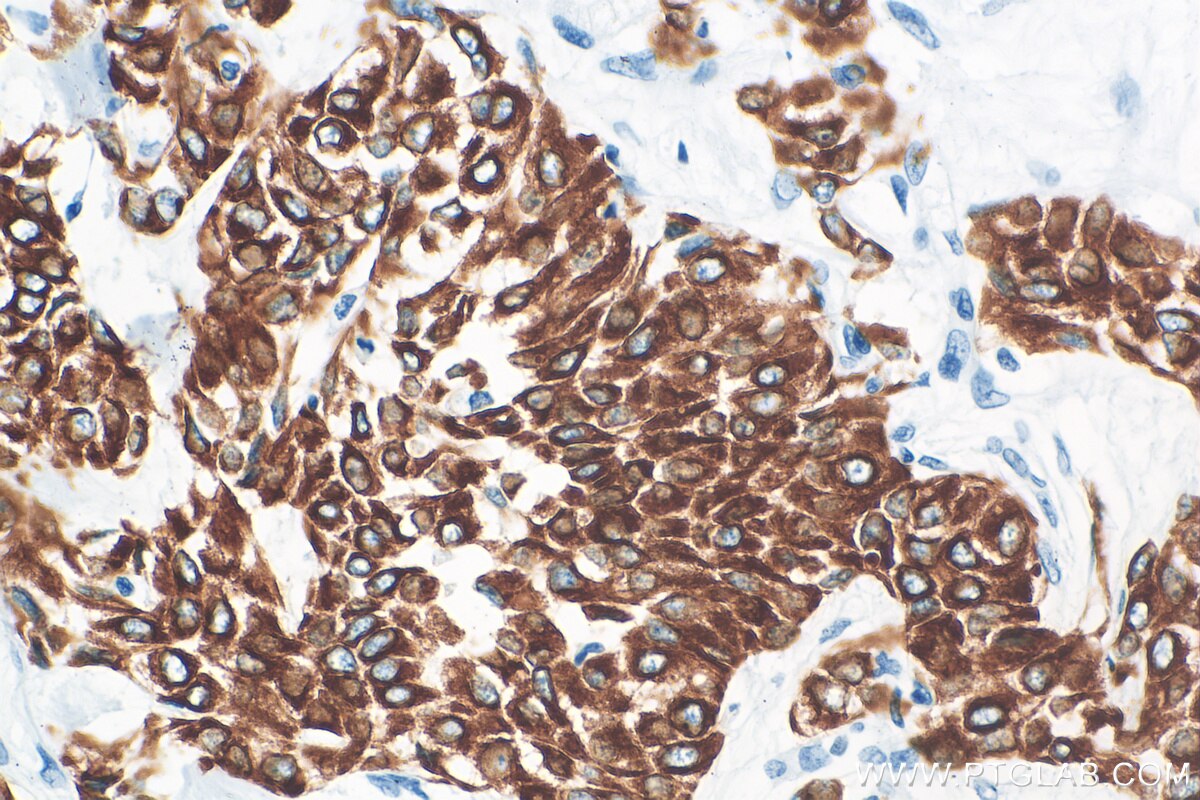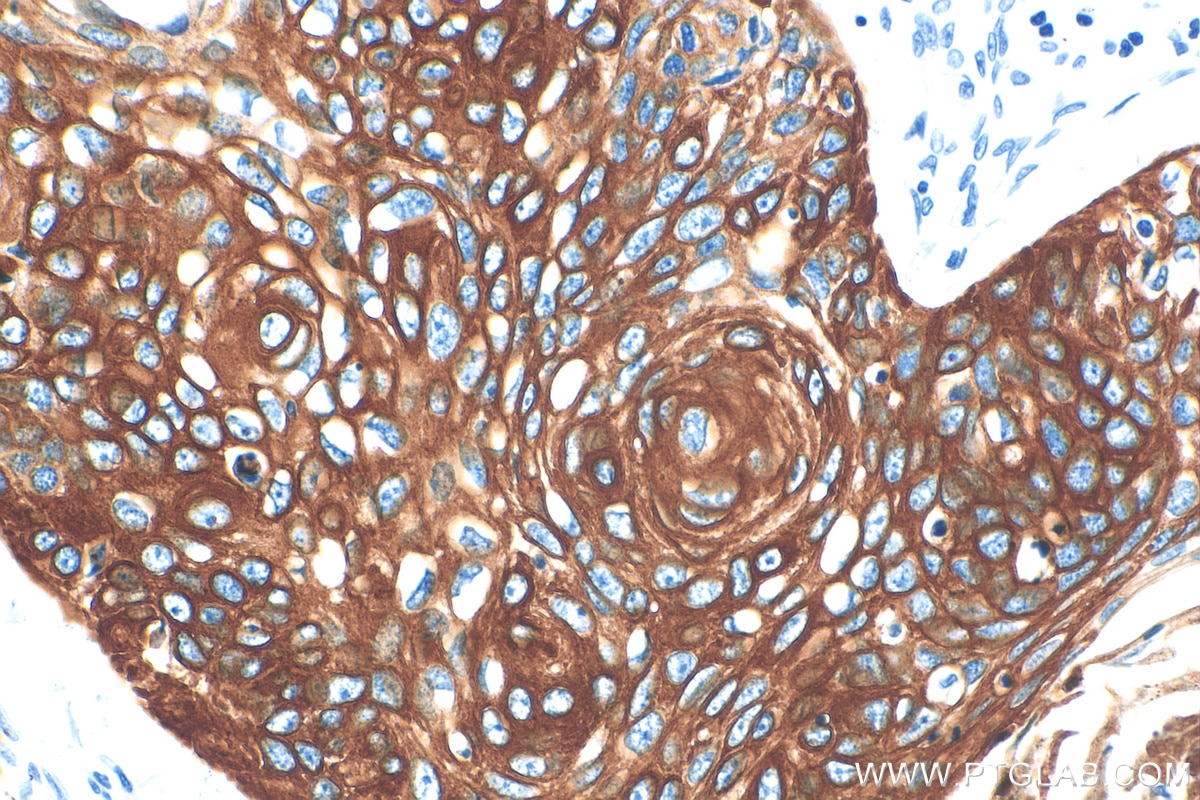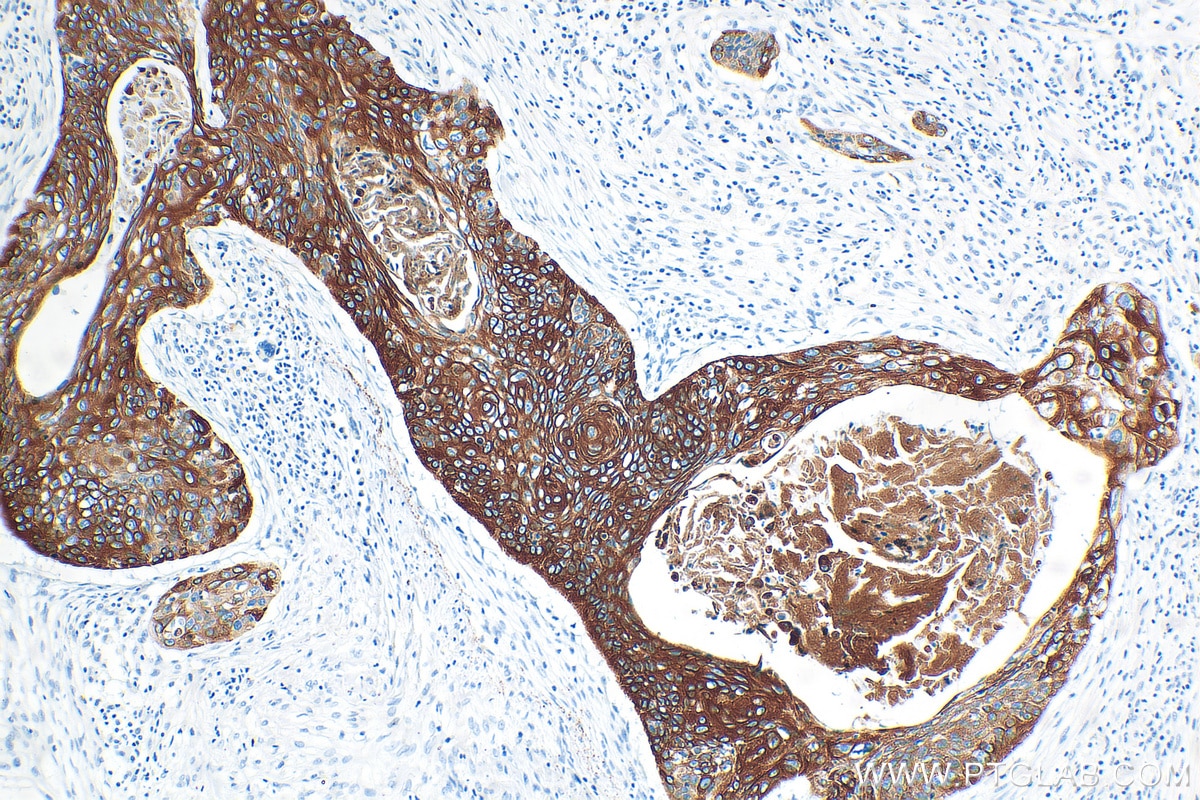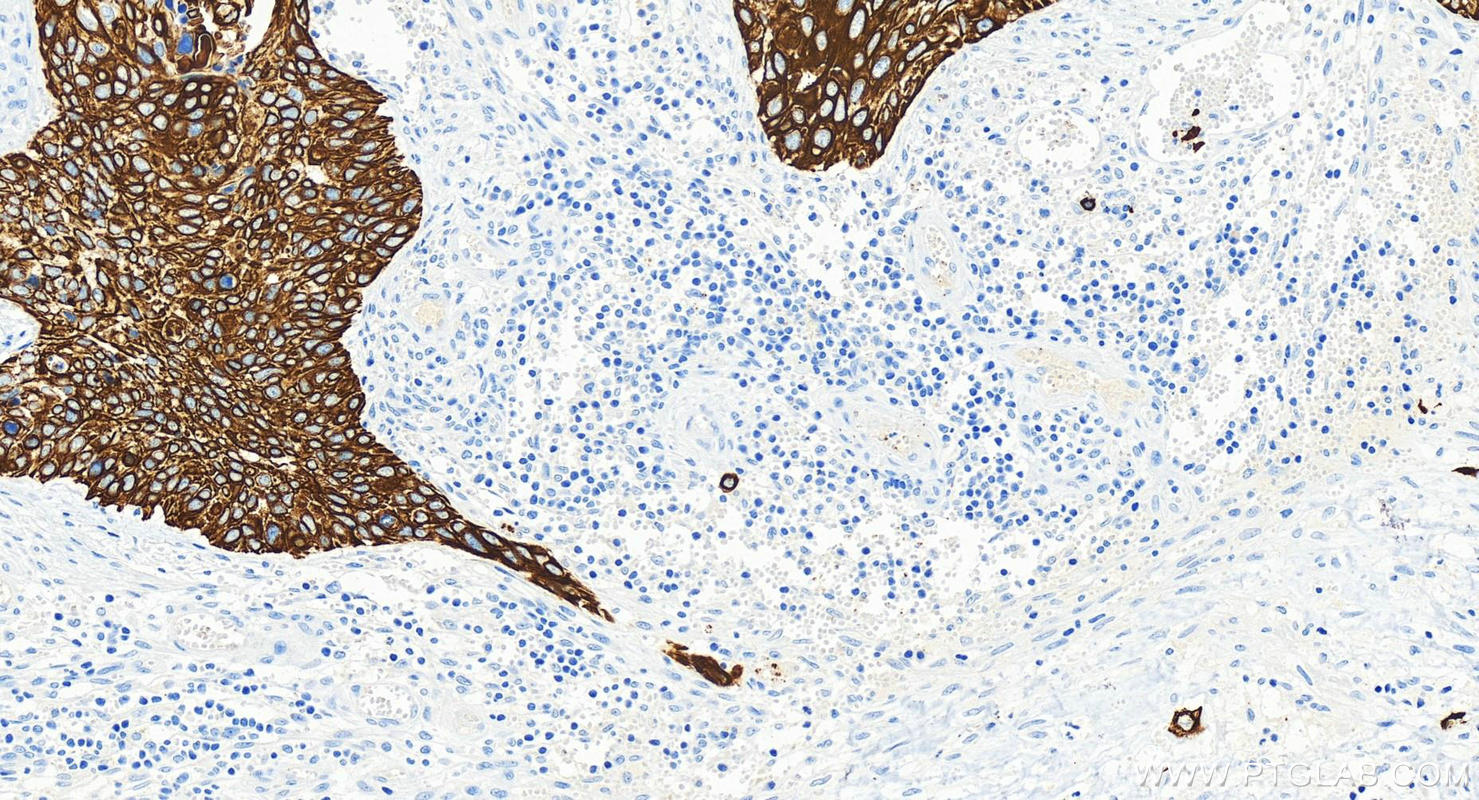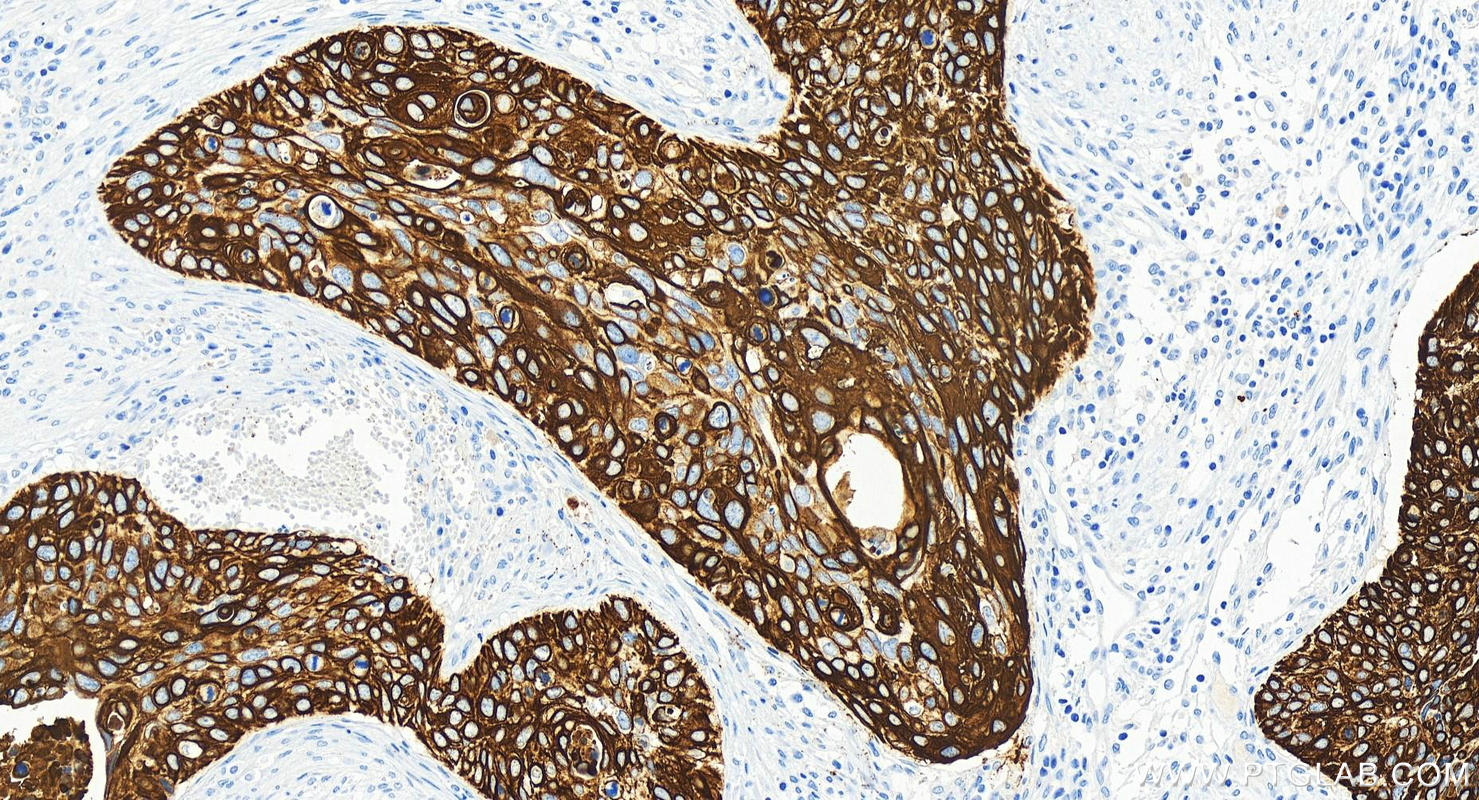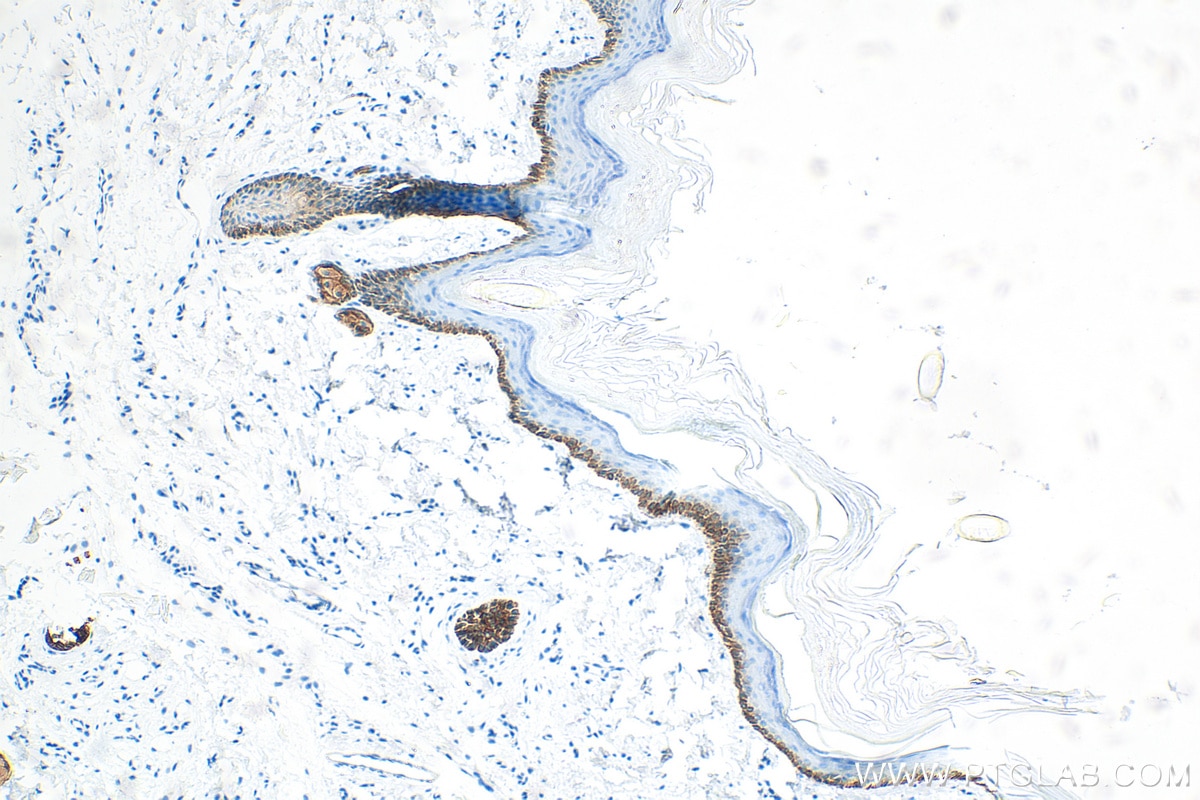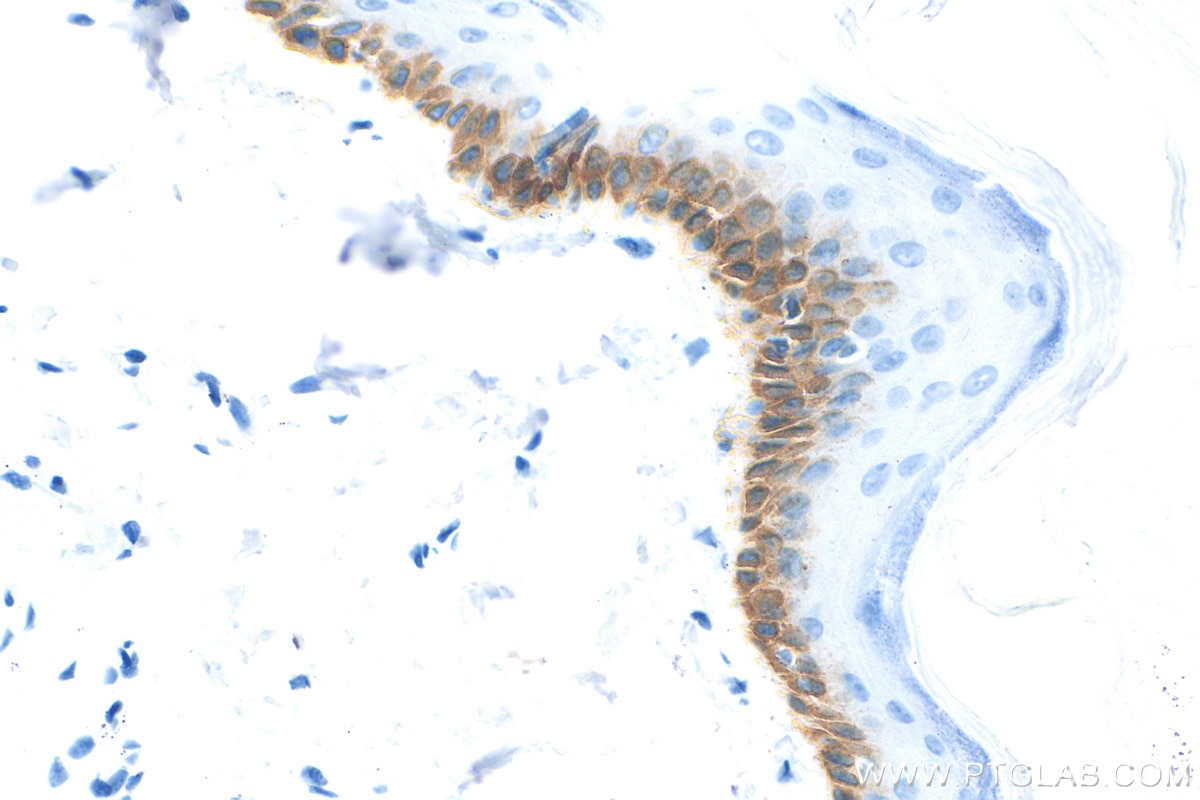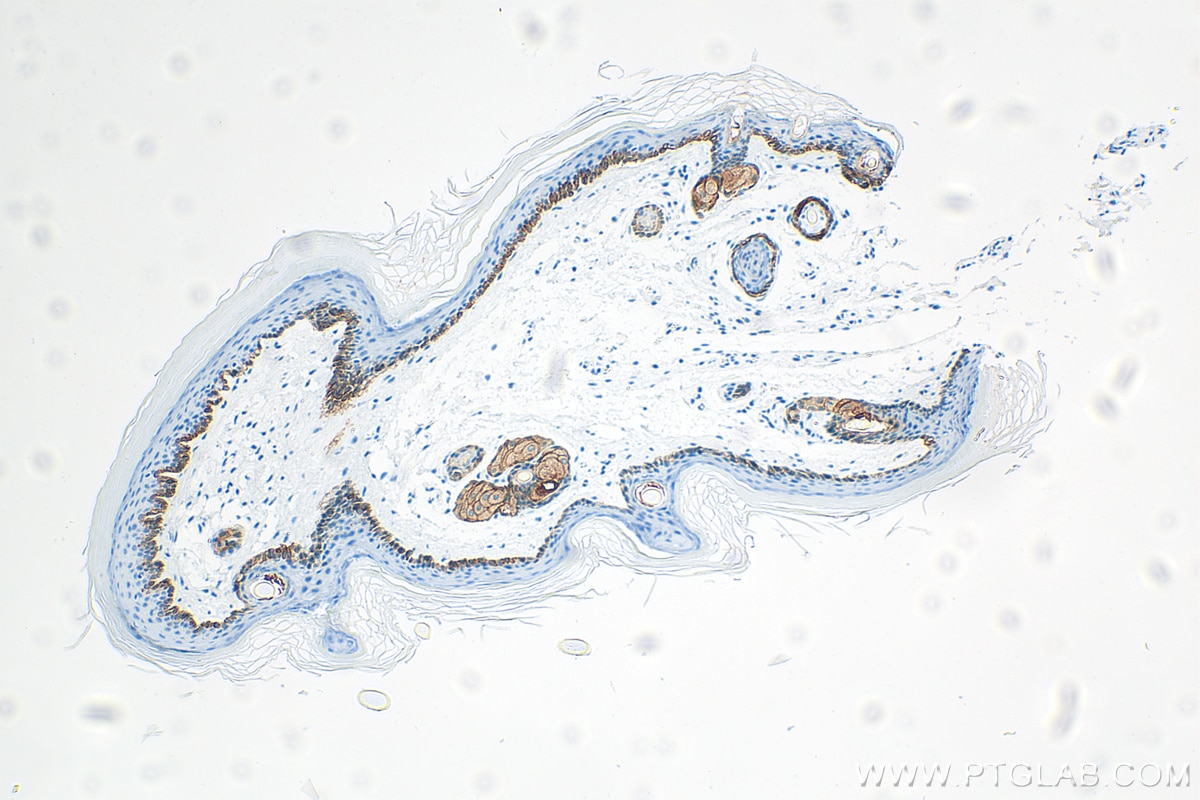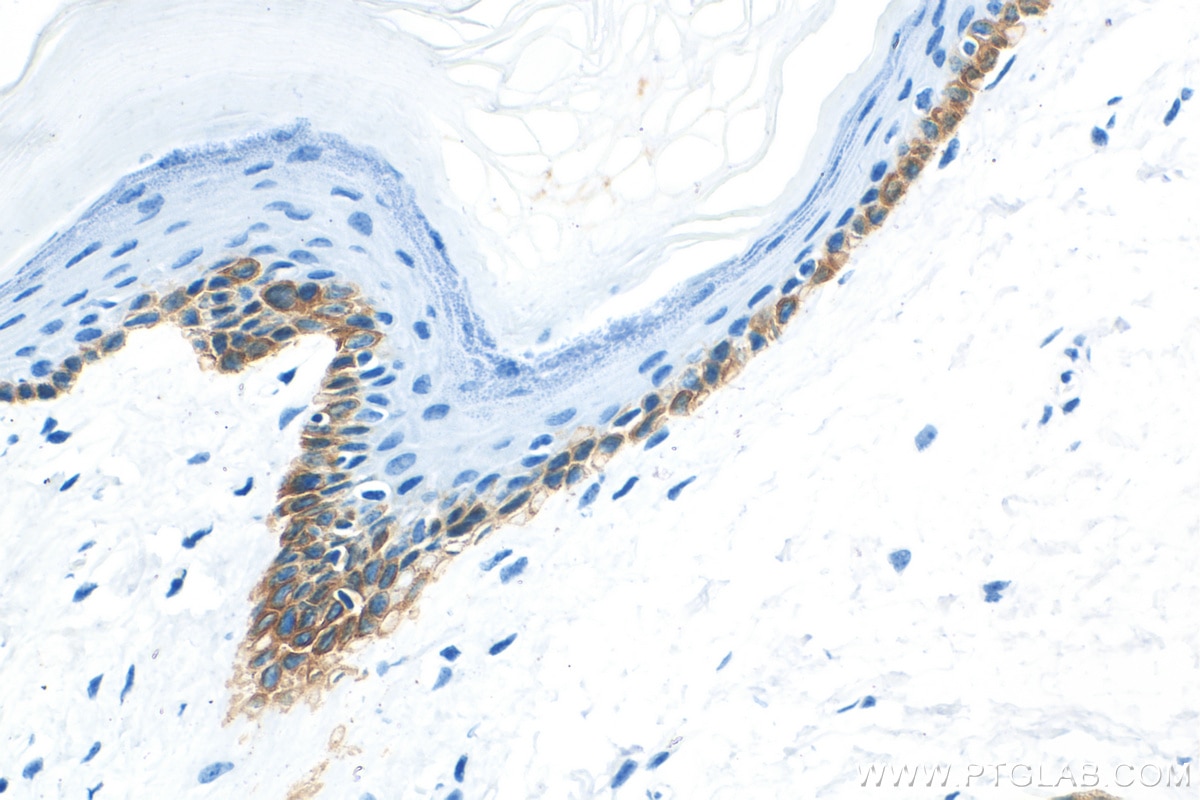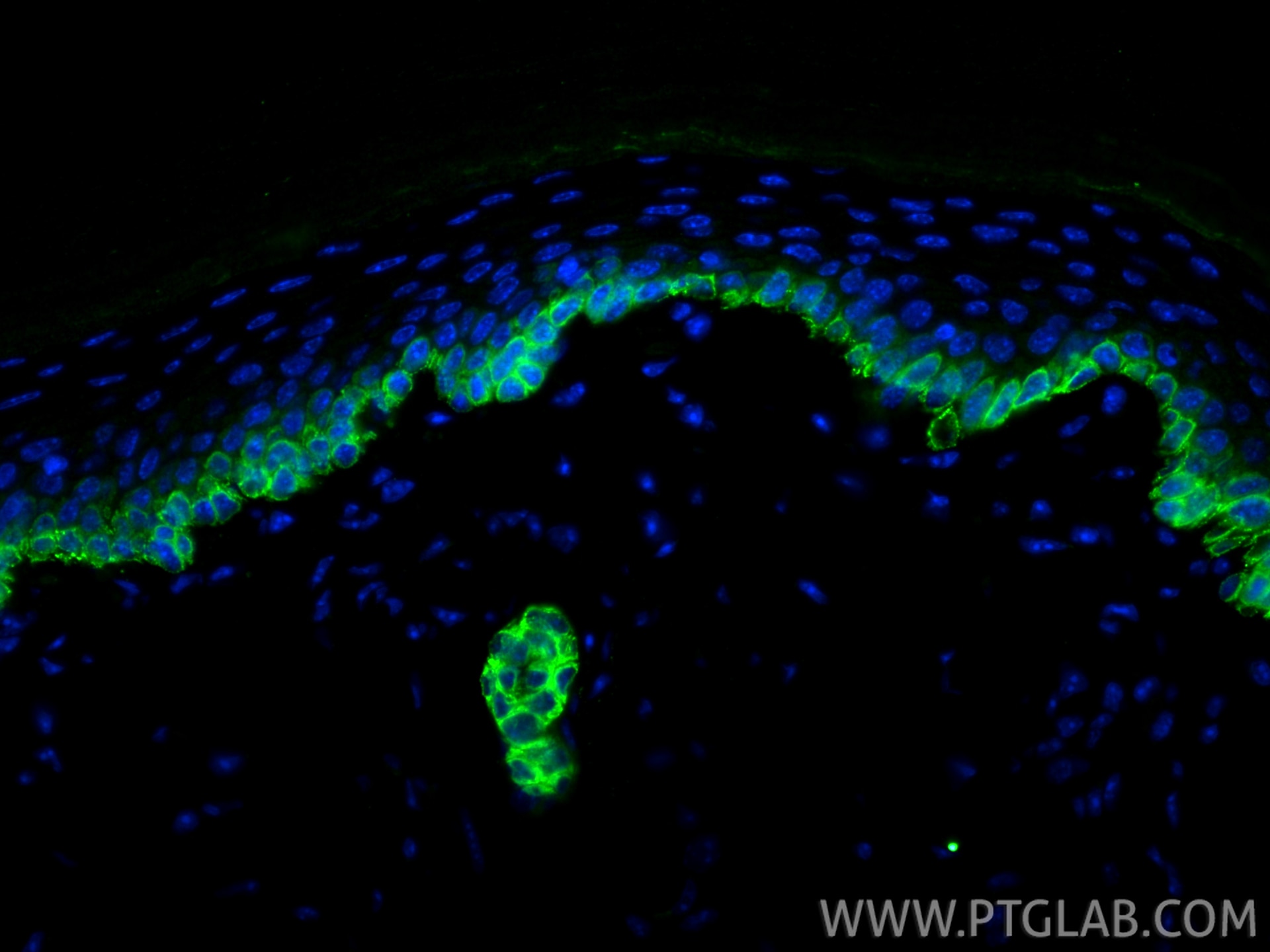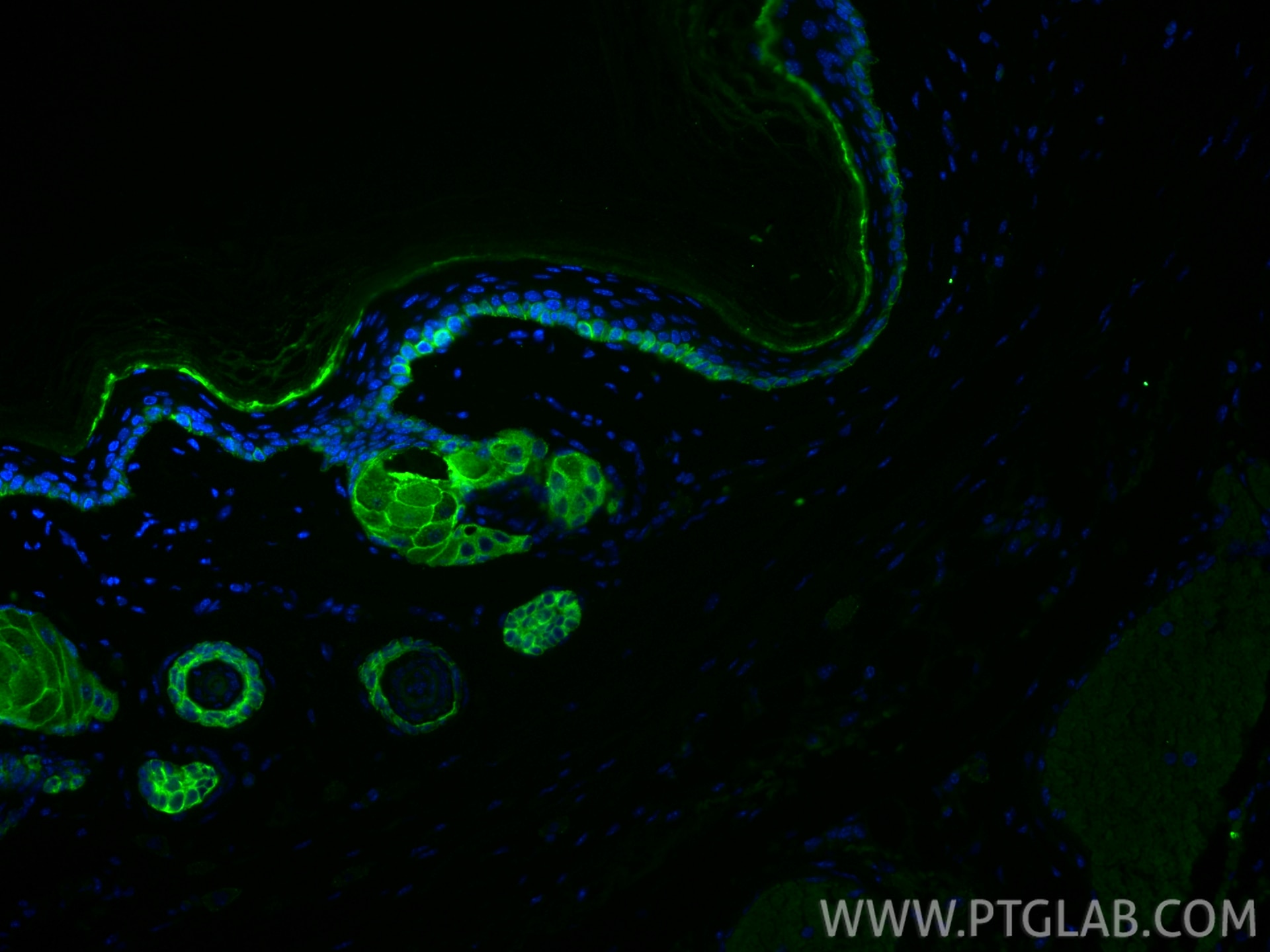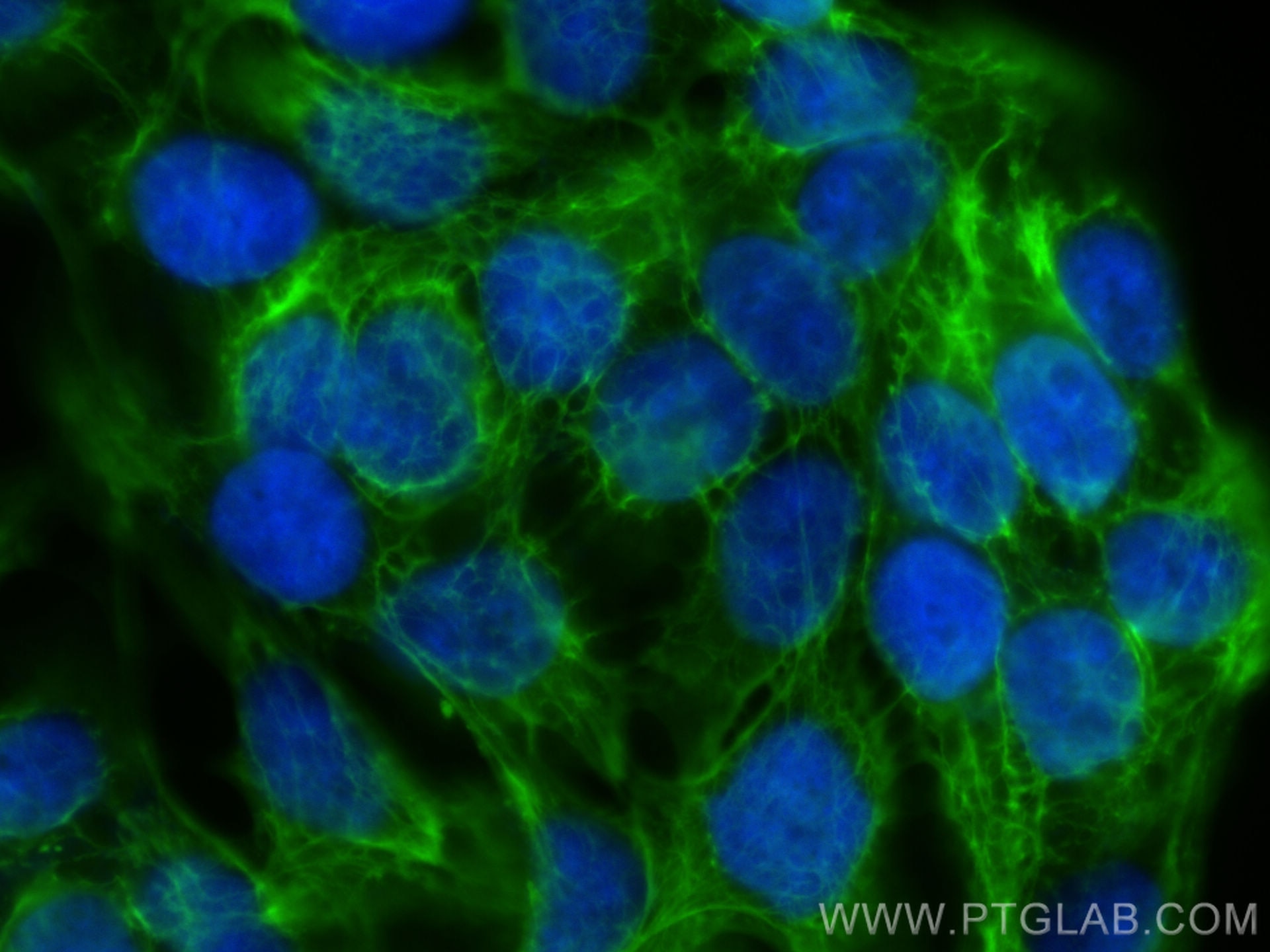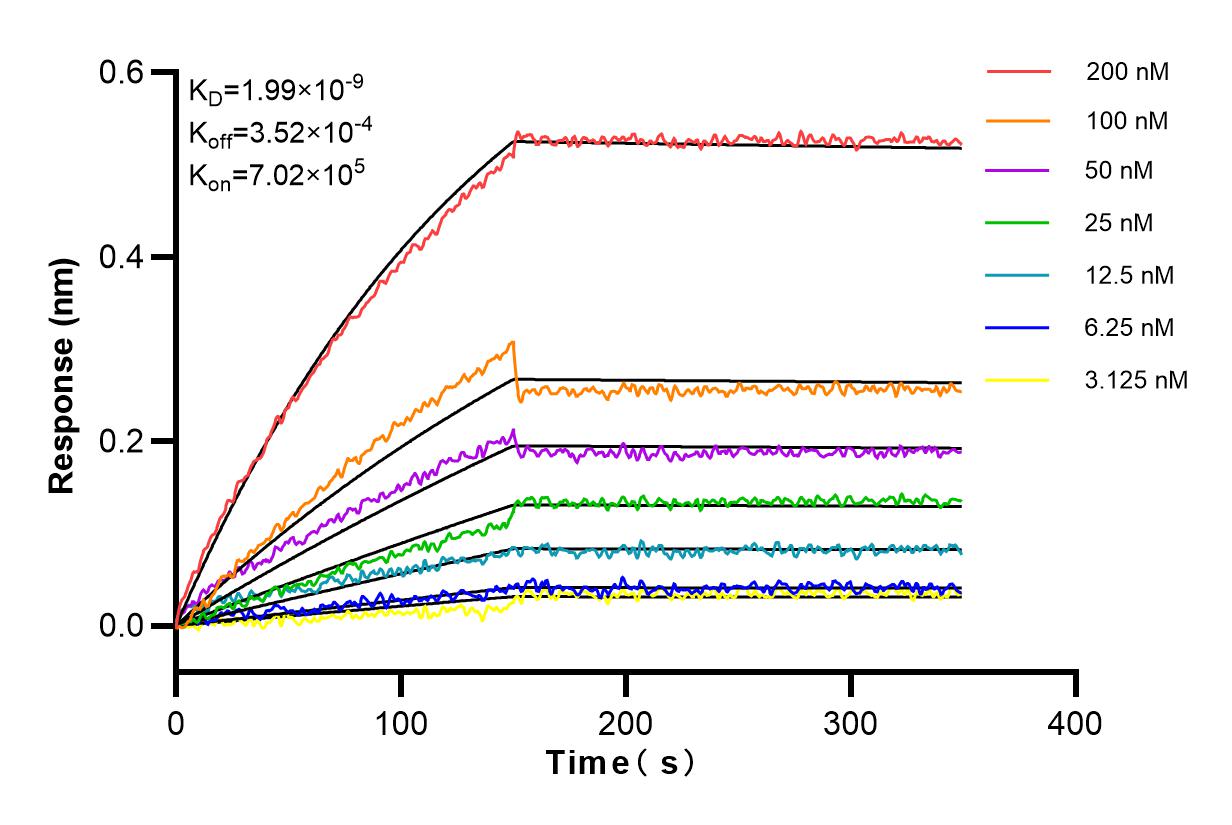Product Information
83058-1-PBS targets Cytokeratin 13 as part of a matched antibody pair:
MP00074-2: 83058-1-PBS capture and 83058-5-PBS detection (validated in Sandwich ELISA)
Unconjugated rabbit recombinant monoclonal antibody in PBS only (BSA and azide free) storage buffer at a concentration of 1 mg/mL, ready for conjugation. Created using Proteintech’s proprietary in-house recombinant technology. Recombinant production enables unrivalled batch-to-batch consistency, easy scale-up, and future security of supply.
This conjugation ready format makes antibodies ideal for use in many applications including: ELISAs, multiplex assays requiring matched pairs, mass cytometry, and multiplex imaging applications.Antibody use should be optimized by the end user for each application and assay.
| Tested Reactivity | human, mouse, rat |
| Host / Isotype | Rabbit / IgG |
| Class | Recombinant |
| Type | Antibody |
| Immunogen |
CatNo: Ag0217 Product name: Recombinant human KRT13 protein Source: e coli.-derived, PGEX-4T Tag: GST Domain: 183-458 aa of BC002661 Sequence: ARLAVDDFRLKYENELALRQSVEADINGLRRVLDELTLSKTDLEMQIESLNEELAYMKKNHEEEMKEFSNQVVGQVNVEMDATPGIDLTRVLAEMREQYEAMAERNRRDAEEWFHAKSAELNKEVSTNTAMIQTSKTEITELRRTLQGLEIELQSQLSMKAGLENTVAETECRYALQLQQIQGLISSIEAQLSELRSEMECQNQEYKMLLDIKTRLEQEIATYRSLLEGQDAKMIGFPSSAGSVSPRSTSVTTTSSASVTTTSNASGRRTSDVRRP Predict reactive species |
| Full Name | keratin 13 |
| Calculated Molecular Weight | 50 kDa |
| Observed Molecular Weight | 50 kDa |
| GenBank Accession Number | BC002661 |
| Gene Symbol | Cytokeratin 13 |
| Gene ID (NCBI) | 3860 |
| Conjugate | Unconjugated |
| Form | Liquid |
| Purification Method | Protein A purification |
| UNIPROT ID | P13646 |
| Storage Buffer | PBS only, pH 7.3. |
| Storage Conditions | Store at -80°C. |
Background Information
Keratin 13 is a member of the keratin family. The keratins are intermediate filament proteins responsible for the structural integrity of epithelial cells and are subdivided into cytokeratins and hair keratins. Most of the type I cytokeratins consist of acidic proteins which are arranged in pairs of heterotypic keratin chains. This type I cytokeratin is paired with keratin 4 and expressed in the suprabasal layers of non-cornified stratified epithelia. Mutations in keratin 13 gene and keratin 4 have been associated with the autosomal dominant disorder White Sponge Nevus. The type I cytokeratins are clustered in a region of chromosome 17q21.2.

